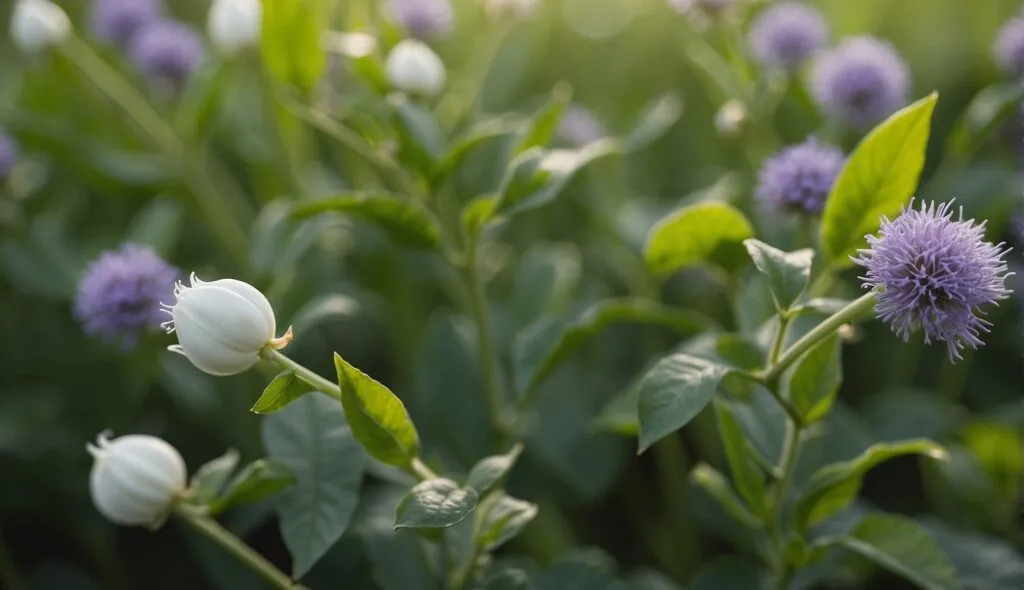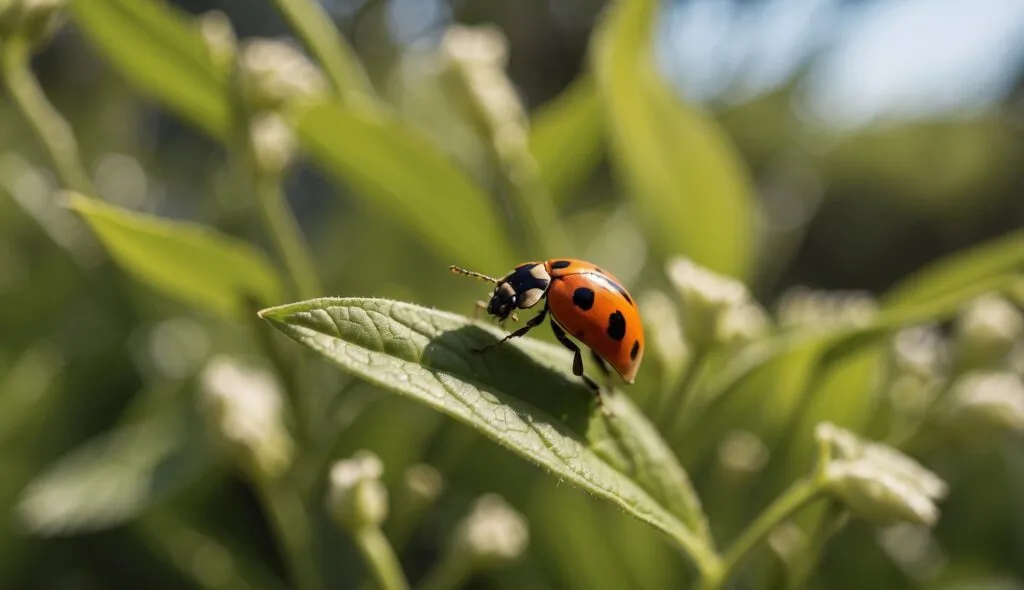Chemical-free pest control is a safe and environmentally friendly way to keep your home free of pests. With the growing concern over the use of pesticides, many homeowners are turning to natural pest control methods to protect their homes and families. Chemical-free pest control solutions are effective, affordable, and easy to implement.
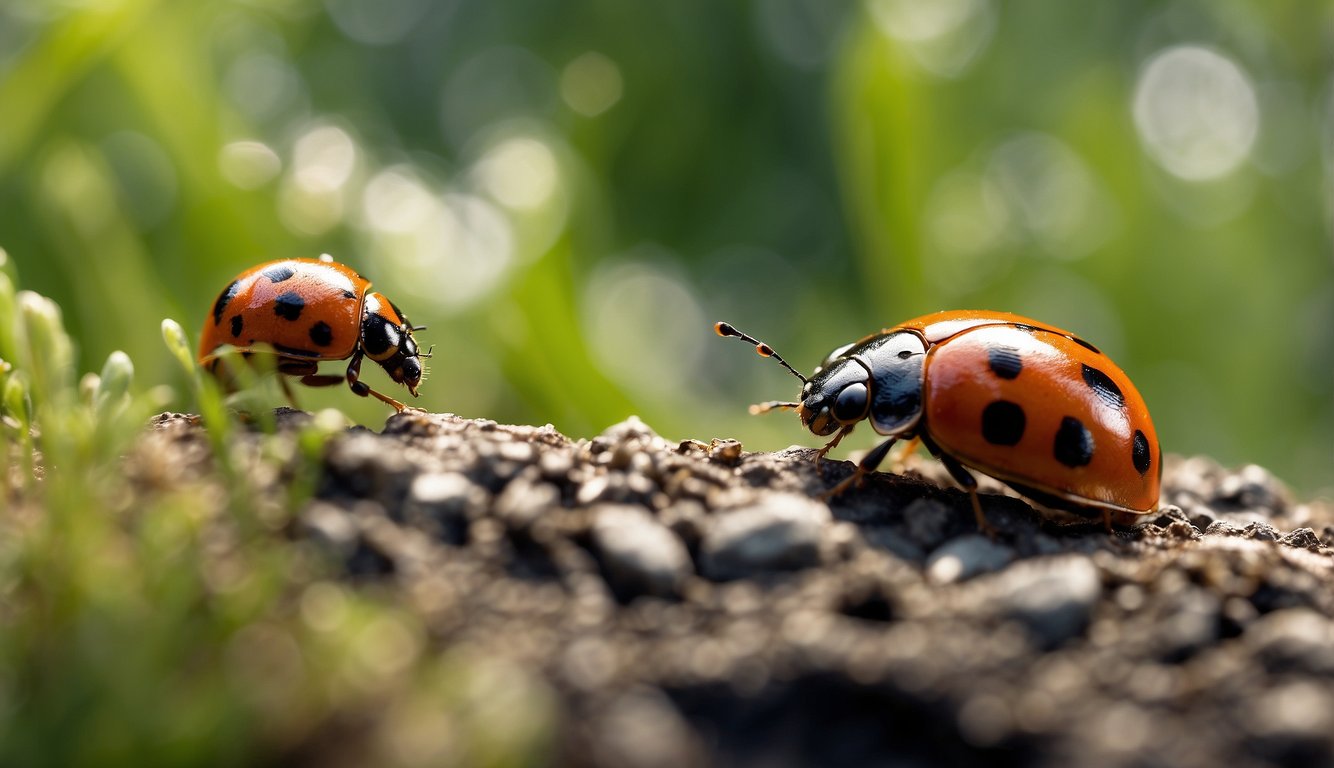
Understanding pests and their behaviors is key to successfully controlling them without the use of harmful chemicals. Pests are attracted to food, water, and shelter, so it’s important to eliminate these attractants to prevent infestations. Simple steps like keeping food in sealed containers, fixing leaks, and sealing cracks and crevices can go a long way in preventing pests from entering your home.
Safe and effective pest control solutions include the use of natural products like diatomaceous earth, essential oils, and vinegar. These products are non-toxic and safe for use around children and pets. Additionally, natural pest control methods like trapping and exclusion can be used to eliminate pests without the use of chemicals.
Table of Contents
Key Takeaways
- Chemical-free pest control is a safe and effective way to keep your home free of pests.
- Understanding pests and their behaviors is key to preventing infestations.
- Natural pest control solutions like diatomaceous earth and essential oils are safe and effective alternatives to chemical pesticides.
Understanding Pests and Their Behaviors
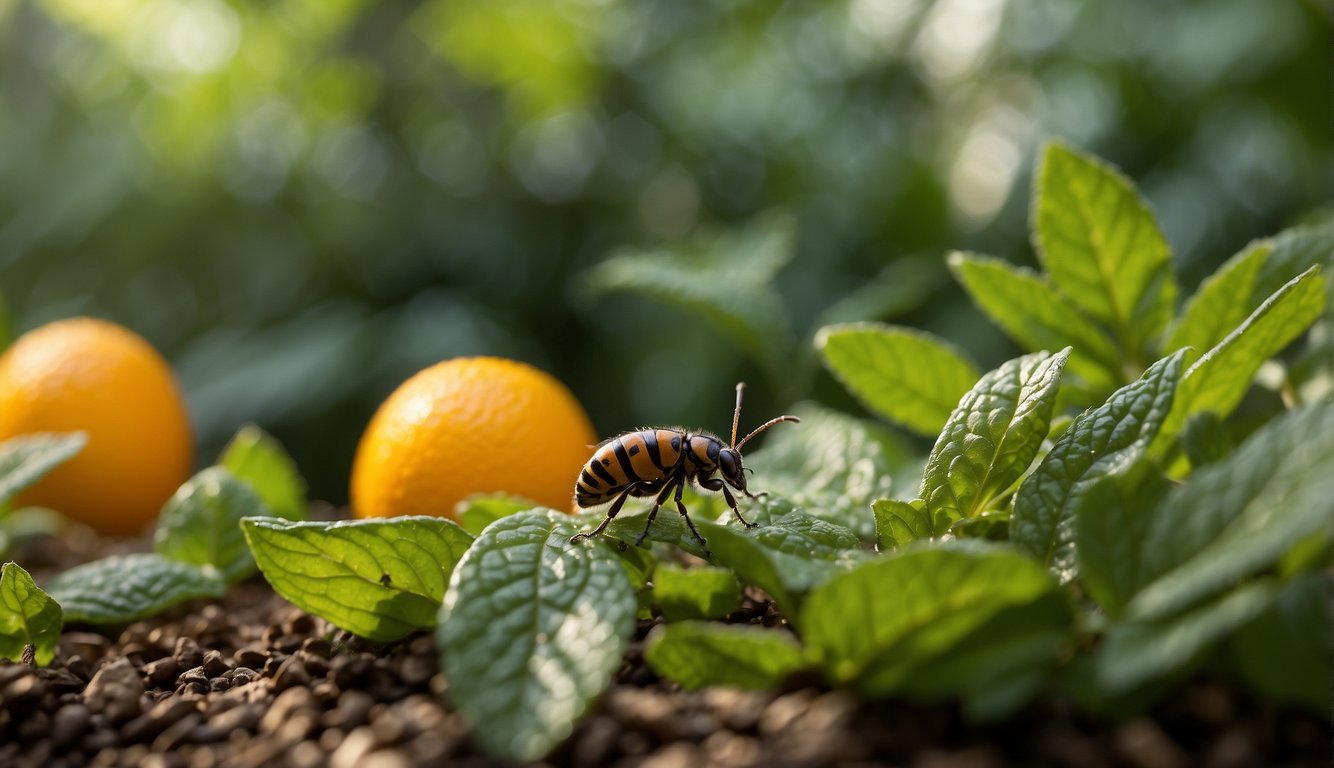
As we explore chemical-free pest control methods, it’s important to understand the behaviors of the pests we’re trying to control. By understanding their habits and patterns, we can more effectively prevent and eliminate infestations without resorting to harmful chemicals.
Ants
Ants are social insects that live in large colonies. They are attracted to food, moisture, and warmth. To prevent ant infestations, it’s important to store food in airtight containers, fix leaky pipes, and seal cracks and crevices in the home.
Mice
Mice are small rodents that can squeeze through tiny openings. They are attracted to food, water, and shelter. To prevent mice infestations, it’s important to store food in airtight containers, seal holes and cracks in the home, and keep the home clean and clutter-free.
Birds
Birds can be a nuisance when they roost on buildings and create messes with their droppings. To prevent bird infestations, it’s important to seal openings in buildings, install bird spikes or netting, and remove any food sources.
Roaches
Roaches are nocturnal insects that thrive in warm, moist environments. They are attracted to food, water, and shelter. To prevent roach infestations, it’s important to keep the home clean and dry, store food in airtight containers, and seal cracks and crevices in the home.
Flies
Flies are attracted to food, garbage, and animal waste. To prevent fly infestations, it’s important to keep the home clean and free of food debris, seal garbage cans tightly, and use screens on doors and windows.
Fleas
Fleas are parasitic insects that feed on the blood of animals and humans. They are attracted to warm, humid environments. To prevent flea infestations, it’s important to vacuum carpets and furniture regularly, wash pet bedding and toys frequently, and treat pets with flea preventatives.
Rodents
Rodents, such as rats and mice, are attracted to food, water, and shelter. To prevent rodent infestations, it’s important to store food in airtight containers, seal holes and cracks in the home, and keep the home clean and clutter-free.
Mosquitoes
Mosquitoes are attracted to standing water, where they lay their eggs. To prevent mosquito infestations, it’s important to eliminate standing water around the home, use screens on doors and windows, and wear protective clothing and insect repellent when outdoors.
Bats
Bats can be a nuisance when they roost in buildings and create messes with their droppings. To prevent bat infestations, it’s important to seal openings in buildings, install bat boxes, and remove any food sources.
Bees
Bees are important pollinators, but they can be a nuisance when they build hives in or around buildings. To prevent bee infestations, it’s important to seal openings in buildings, remove any food sources, and contact a professional beekeeper to safely remove hives.
Aphids
Aphids are small insects that feed on plant sap. They can be a nuisance in gardens and on houseplants. To prevent aphid infestations, it’s important to keep plants healthy and well-watered, remove any infested leaves or branches, and use natural predators such as ladybugs to control populations.
Ladybugs
Ladybugs are natural predators that feed on aphids and other pests. To attract ladybugs to the garden, it’s important to plant flowers such as daisies and marigolds, and avoid using pesticides that can harm beneficial insects.
Cockroaches
Cockroaches are nocturnal insects that thrive in warm, moist environments. They are attracted to food, water, and shelter. To prevent cockroach infestations, it’s important to keep the home clean and dry, store food in airtight containers, and seal cracks and crevices in the home.
By understanding the behaviors of pests and taking preventative measures, we can effectively control infestations without resorting to harmful chemicals.
Safe and Effective Pest Control Solutions
When it comes to pest control, we understand the importance of using safe and effective solutions. That’s why we’ve compiled a list of chemical-free pest control solutions that are both safe and effective.
Chemical Alternatives
Chemical alternatives are a great option for those who want to avoid harsh chemicals. One great alternative is the use of peppermint oil. Peppermint oil is a natural repellent that is effective against a variety of pests, including ants, spiders, and mice. Another alternative is the use of lemongrass oil. Lemongrass oil is a natural insecticide that is effective against mosquitoes, flies, and other flying insects.
Natural Repellents
Natural repellents are another great option for those who want to avoid toxic chemicals. One great natural repellent is citronella. Citronella is a natural insect repellent that is effective against mosquitoes, flies, and other flying insects. Another great natural repellent is rosemary. Rosemary is a natural insecticide that is effective against a variety of pests, including ants, flies, and mosquitoes.
Physical Barriers and Traps
Physical barriers and traps are another great option for those who want to avoid toxic chemicals. One great physical barrier is the use of window screens. Window screens are a great way to keep pests out of your home without the use of toxic chemicals. Another great physical barrier is the use of natural barriers, such as plants. Plants like lavender and mint are natural repellents that can help keep pests out of your home. Finally, traps are a great option for those who want to avoid toxic chemicals. Sticky traps, fruit fly traps, flea traps, and bed bug traps are all great options for trapping pests without the use of toxic chemicals.
Vinegar
Vinegar is a great natural solution for pest control. Diluted vinegar can be used to clean surfaces and deter ants and flies. It can also be used as a natural weed killer in your garden.
Integrated Pest Management
Integrated pest management is a holistic approach to pest control that focuses on prevention and non-toxic solutions. This approach involves identifying the root cause of pest problems, implementing preventative measures, and using non-toxic solutions to control pests when necessary. This approach is effective and environmentally friendly.
In conclusion, there are many safe and effective pest control solutions available that do not rely on toxic chemicals. By using chemical-free pest control solutions, we can create a safer and healthier environment for ourselves and our families.
Preventing Pest Infestations
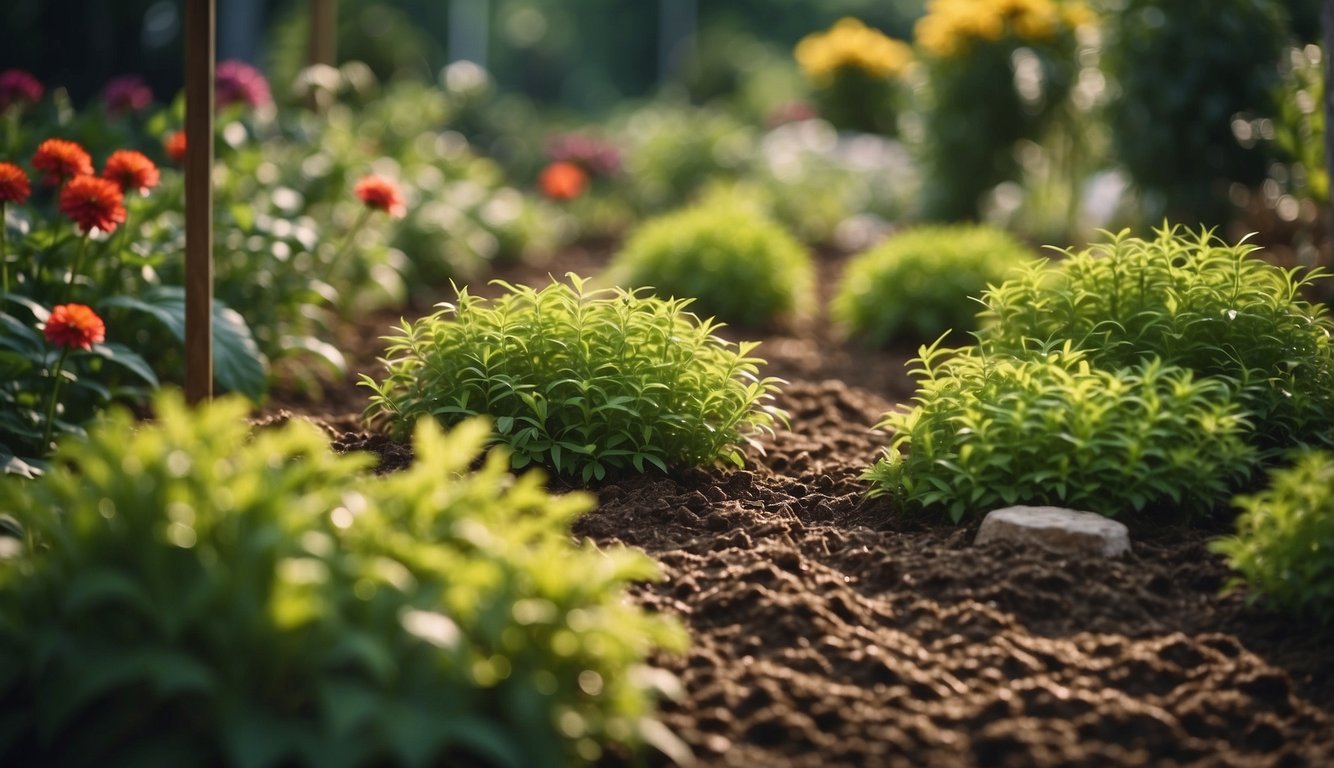
As property owners, we can take several steps to prevent pest infestations without using chemicals. Here are a few tips:
Keep Your Property Clean and Dry
Pests thrive in dirty and moist environments. Therefore, it’s important to keep your property clean and dry. Regularly vacuum your floors and carpets to remove crumbs and debris that can attract pests. Clean up spills immediately and dispose of garbage regularly. Fix any leaks or moisture problems to prevent mold growth.
Seal Gaps and Cracks
Pests can enter your property through small gaps and cracks in the foundation, walls, and windows. Inspect your property regularly and seal any gaps or cracks you find. Use caulk or weather-stripping to seal gaps around windows and doors. Fill gaps in the foundation with concrete or mortar.
Store Food Properly
Pests like ants and rodents are attracted to food sources. Store food in sealed containers made of glass, plastic, or metal. Keep your pantry clean and organized. Check expiration dates and throw away any expired food.
Use Natural Repellents
Certain plants like basil and peppermint can repel pests. You can also use essential oils like eucalyptus and tea tree to repel pests. Place these plants or oils in areas where pests are likely to enter your property.
By following these simple steps, we can prevent pest infestations without using harmful chemicals.
Pest Control and Health Considerations
When it comes to pest control, there are many health considerations to take into account. We want to ensure that we are using safe, non-toxic methods that have minimal impact on the environment and are sustainable in the long term. Integrated pest management (IPM) is a great approach to pest control that takes all of these factors into account.
One of the main health concerns when it comes to pest control is respiratory issues. Chemical pesticides can cause irritation to the lungs and exacerbate conditions such as asthma and allergies. By using natural, chemical-free methods, we can reduce the risk of respiratory issues and ensure that our homes are safe and healthy environments.
Another important consideration is the impact of pest control methods on pets. Chemical pesticides can be toxic to animals, causing health problems or even death. By using non-toxic methods, we can ensure that our pets are safe and healthy while still effectively controlling pests.
Prevention is also key when it comes to pest control and health. By taking steps to prevent pests from entering our homes in the first place, we can reduce the need for pest control methods and minimize our exposure to potential health risks.
Overall, it is important to take a holistic approach to pest control that takes into account our health, the health of our pets, and the health of the environment. By using sustainable, non-toxic methods such as IPM, we can effectively control pests while still maintaining a safe and healthy home environment.
Conclusion
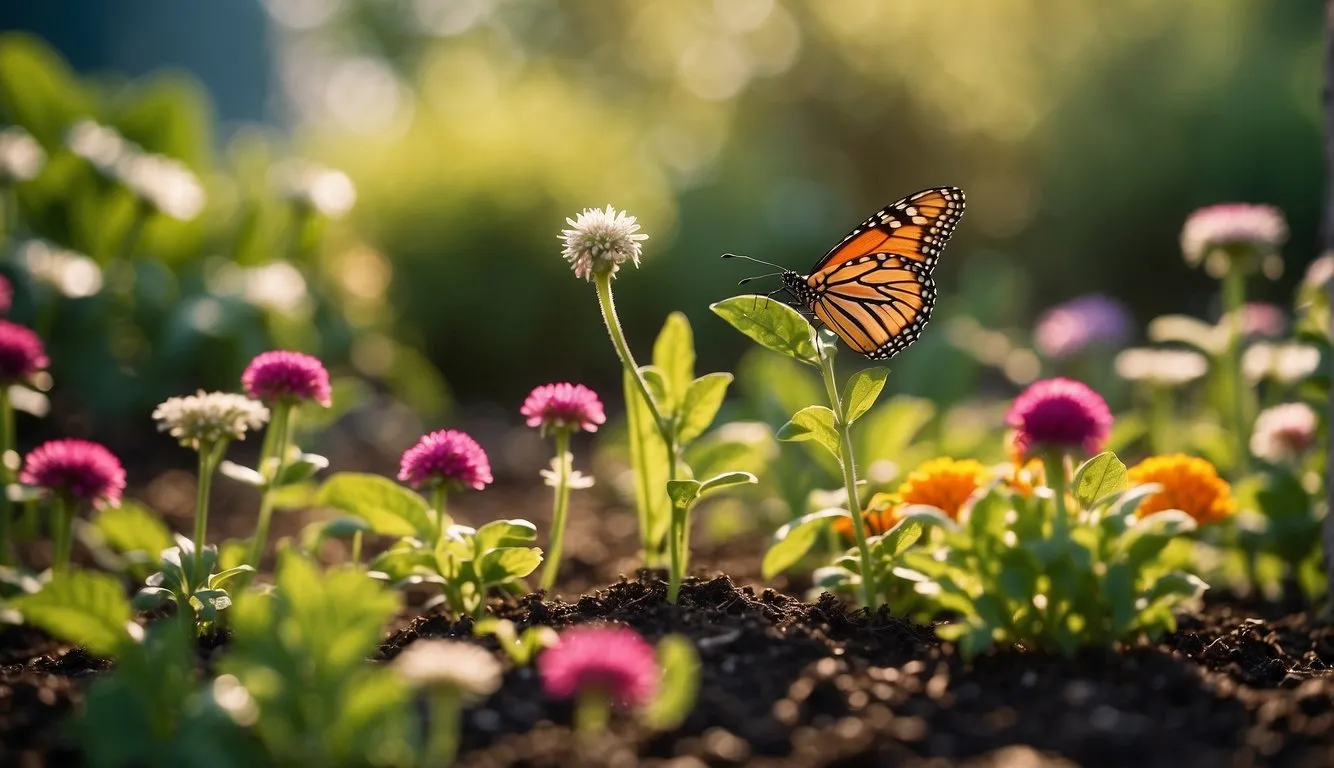
In this article, we have discussed the benefits of chemical-free pest control methods, such as crop rotation, biological controls, and natural repellents. These methods promote sustainable agriculture, reduce soil erosion, preserve biodiversity, and conserve water resources. They also improve soil health, enhance nutrient content, and produce healthy, nutritious food.
Integrated Pest Management (IPM) is an environmentally friendly approach to pest control that combines different methods to manage pests effectively while minimizing risks to human health and the environment. IPM involves monitoring pests, setting action thresholds, and using a combination of cultural, biological, and chemical control methods as needed.
Chemical-free pest control offers safe and effective alternatives to traditional chemical treatments, reducing the risks to families, pets, and the environment. By utilizing natural repellents, biological controls, mechanical methods, and integrated pest management techniques, we can effectively manage pests without harming the environment.
In Austin, Texas, many residents are concerned about the environment and are looking for ways to reduce their impact on the planet. Chemical-free pest control is a great way to achieve this goal. By using environmentally friendly pest control methods, we can help protect the environment, reduce our carbon footprint, and create a more sustainable future for ourselves and future generations.
In conclusion, chemical-free pest control is a safe and effective way to manage pests while protecting the environment. By using IPM and natural pest control methods, we can reduce our impact on the planet and create a more sustainable future.
Frequently Asked Questions
What are the most effective non-toxic methods for home pest control?
The most effective non-toxic methods for home pest control include eliminating sources of food, water, and shelter for pests, sealing up cracks and crevices, and using natural repellents such as essential oils, vinegar, and diatomaceous earth. Sticky traps and pheromone traps can also be effective in catching and monitoring pests.
How do I find a reputable pest control service that uses natural methods?
When searching for a pest control service that uses natural methods, look for companies that advertise eco-friendly or organic pest control services. Check their website for information on the products and methods they use. You can also ask for referrals from friends or family who have used natural pest control services in the past.
Can organic pest control solutions provide long-term protection against infestations?
Yes, organic pest control solutions can provide long-term protection against infestations. However, it is important to note that natural methods may take longer to show results and may require more frequent application than chemical pesticides. It is also important to address the root cause of the infestation, such as removing sources of food and water for pests.
What natural repellents can be safely used to deter common household pests?
Common natural repellents include peppermint oil, tea tree oil, lavender oil, and eucalyptus oil. These oils can be diluted with water and sprayed around the home to deter pests. Other natural repellents include vinegar, garlic, and citrus peels.
How can I implement pest control in my garden without using synthetic chemicals?
To implement pest control in your garden without using synthetic chemicals, start by practicing good garden hygiene. Remove dead or diseased plants, and keep the garden free of debris and weeds. Use companion planting to attract beneficial insects and deter pests. You can also use natural repellents such as neem oil and garlic spray.
Are there any non-toxic sprays that are safe for use around children and pets?
Yes, there are non-toxic sprays that are safe for use around children and pets. Look for products that are labeled as natural, organic, or eco-friendly. Ingredients such as essential oils, vinegar, and diatomaceous earth are safe for use around children and pets. However, it is important to always read the label and follow the instructions carefully.

